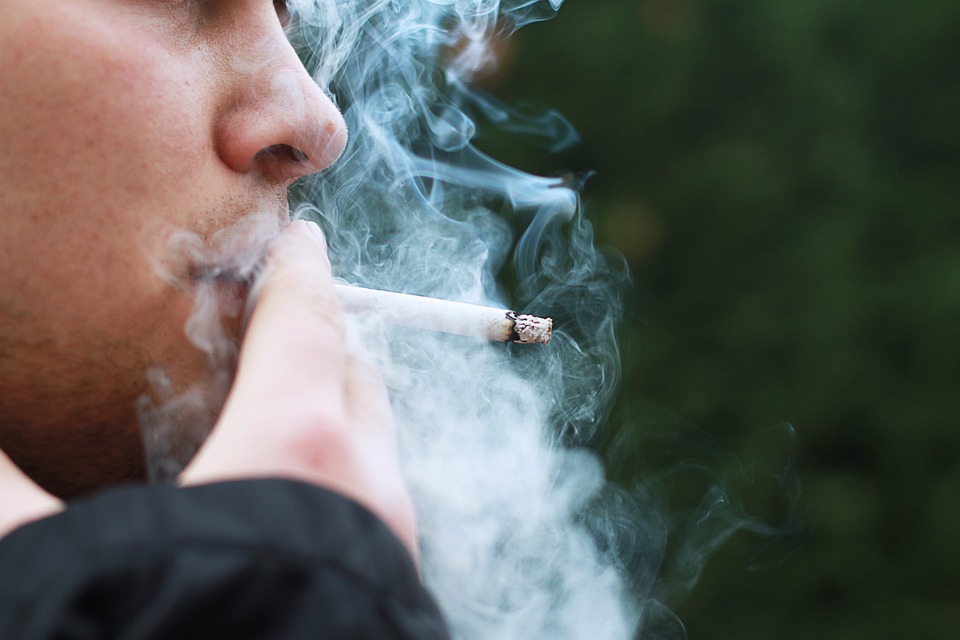Views expressed in opinion columns are the author’s own.
The health risks associated with tobacco use and nicotine addiction have led several states to raise the legal smoking age to 21. It seems Maryland is soon to follow, with House Bill 1169 close to passing. While this is a step in the right direction to prevent young people from becoming addicted to nicotine — and eventually suffering from the health costs that smoking brings — we must figure out what will be done to help the 18- to 20-year-olds who are already smoking.
If passed, the bill would be implemented Oct. 1, prohibiting anyone under the age of 21 from purchasing tobacco and nicotine products. This means 18- to 20-year-old smokers, who are currently legally able to purchase tobacco products and e-cigarettes, will essentially be forced by the state to quit. There will be no phase-in period, nor exceptions to allow those suffering from a nicotine addiction or habit to make their own decision.
The removal of autonomy for those struggling with addiction is not a solution. The pattern that the bill aims to counter — young people becoming addicted to nicotine — was further enabled by the system in which smoking was legal at 18. As was referenced several times during the bill’s House Committee hearing, the earlier teens begin smoking, the more likely it is they will become addicted and continue smoking into their adult lives.
By raising the age to 21, legislators hope this bill will further limit minors’ access to tobacco and nicotine products, as they will no longer be able to get them from their peers who are of age. Despite its benefits, the bill doesn’t address the fact that this pattern of underage smoking has already affected and caused addictions in many people between 18 and 20 — it doesn’t work to fix the damage the system has already done.
Instead, smokers affected by this bill are being told to quit. In the hearing, Kathleen Hoke, representing the Maryland Cancer Council, said, “the local health departments and the state health department stand ready to provide any and all resources to [18- to 20-year-old smokers] to help them with cessation.”
Yet getting help from these departments can be tricky. While programs to manage the psychological stress of cessation are available to those as young as 13, only some county health departments offer free nicotine replacement therapy products (such as patches or lozenges) to help smokers ease off nicotine. Free online and phone services such as Maryland’s Quitline don’t guarantee replacement therapy, either.
Smokers affected by this bill who can’t get access to these services — and can’t afford the high prices of purchasing them on their own — may have to go through nicotine withdrawal, which can cause headaches, anxiety, tremors, difficulty sleeping and abdominal cramps. On top of the lifestyle adjustment that often comes with quitting smoking, these symptoms are, at best, a major distraction from everyday life.
This state-mandated cessation will also affect some demographics more harshly than others. Smoking and nicotine addiction rates are higher among those who are less educated, less wealthy, disabled, part of the LGBTQ community or uninsured, according to the CDC. Many smokers are already disadvantaged; they don’t deserve the added stress of forced cessation.
Raising the smoking age to 21 could help stop the production of a new age of smokers in Maryland, but that doesn’t mean we should punish those who have already been hurt by the broken system currently in place. If the state believes 18 is too young to have access to nicotine, it must recognize the consequences of its own mistake in ever setting the minimum age that low. An amendment should be added to House Bill 1169 to allow those who already use tobacco and nicotine products to retain access to them, while providing local and state support to help tobacco and nicotine users of all ages to quit.
Ray Newby is a freshman English major. He can be reached at raynewby00@gmail.com.



